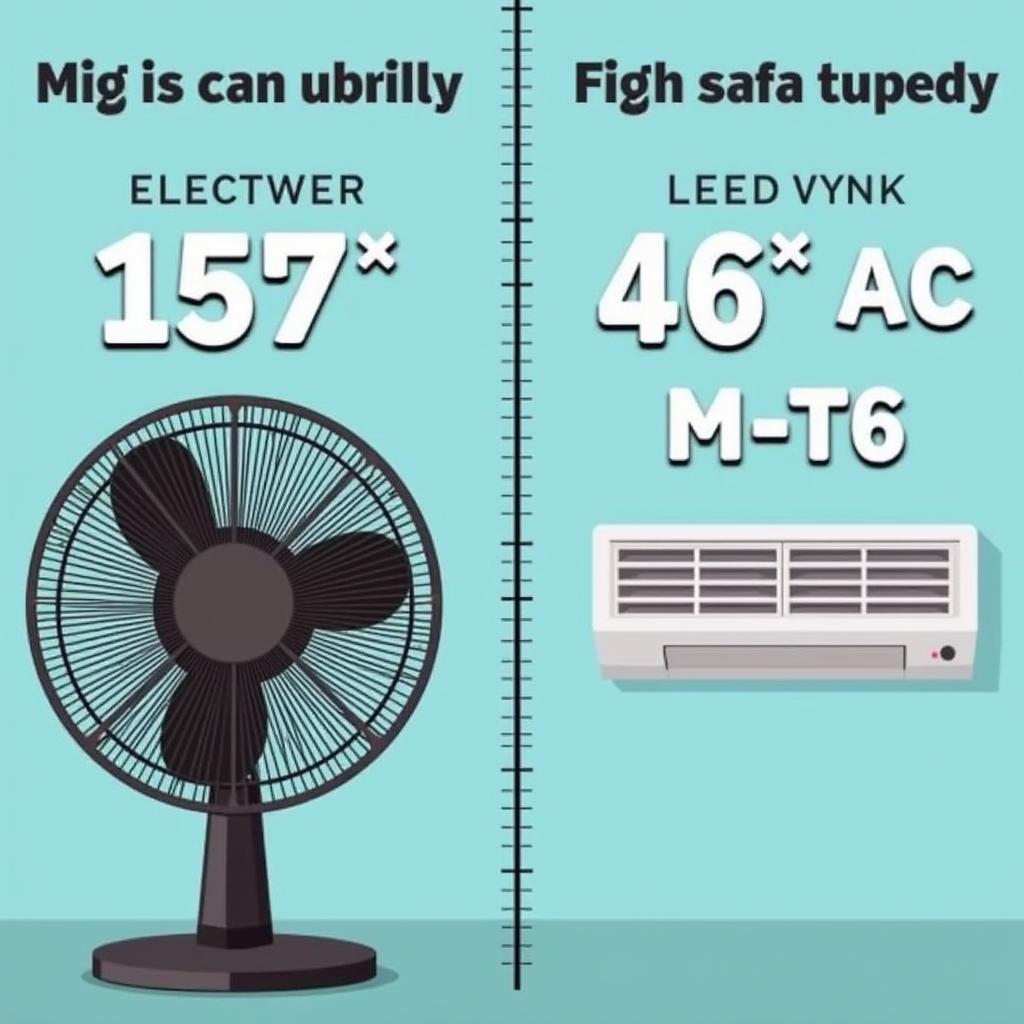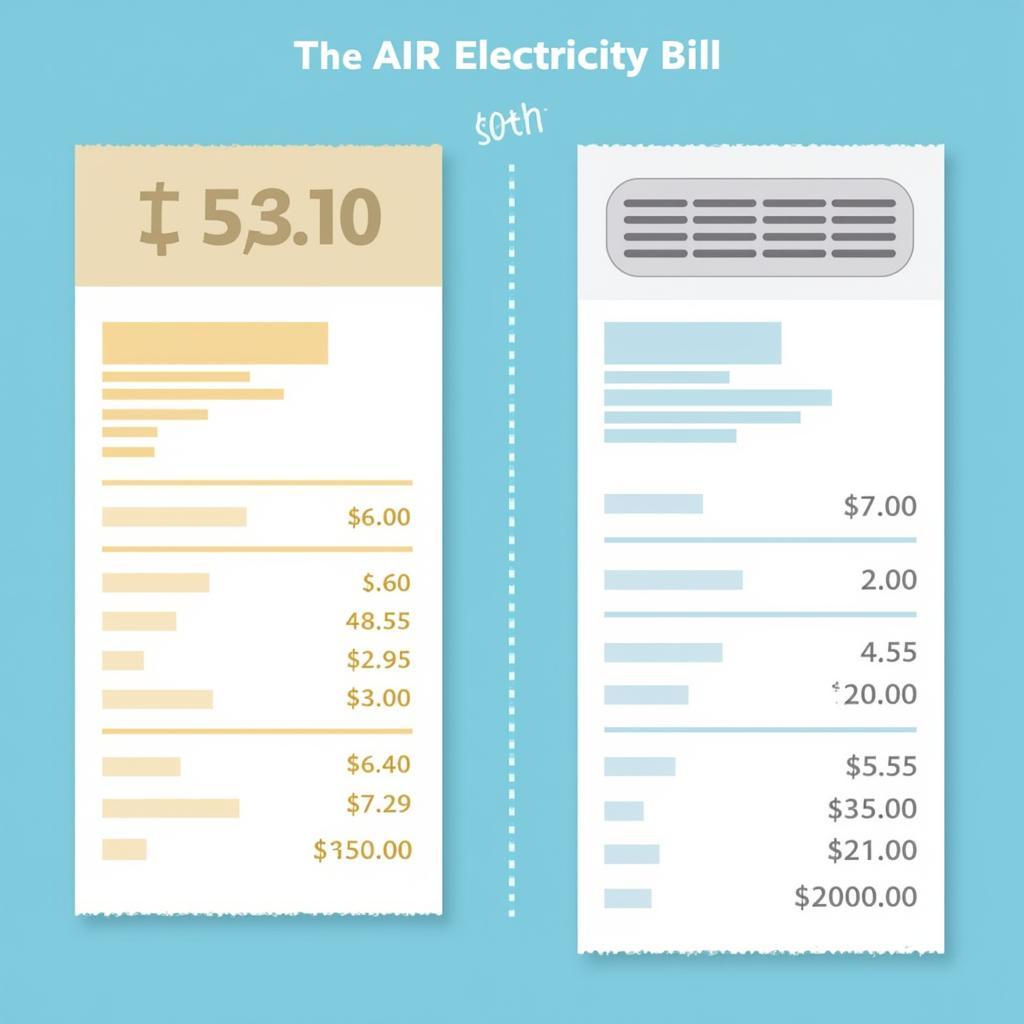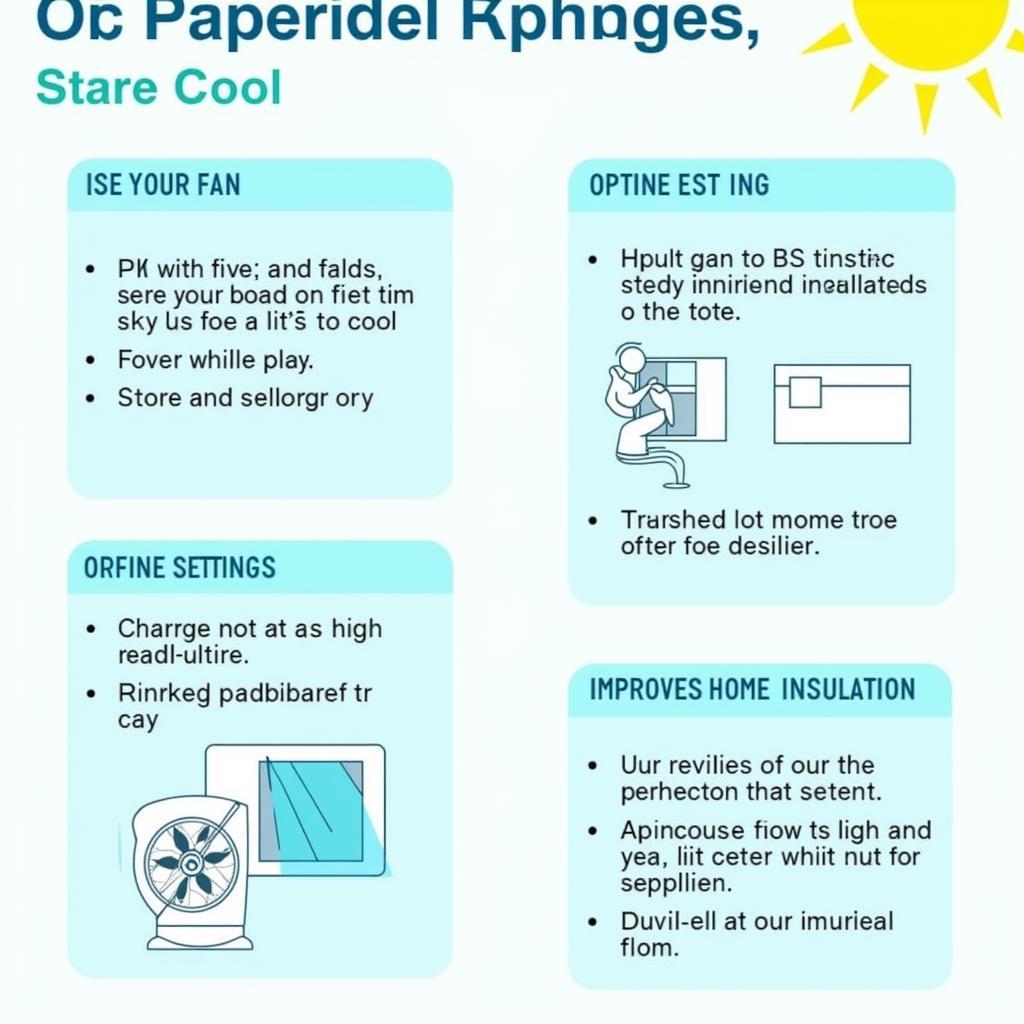When it comes to beating the heat, fans and air conditioners are the go-to solutions in many homes. But with increasing energy costs, you might be wondering: Does A Fan Use Less Electricity Than An Air Conditioner? The answer is a resounding yes, and the difference in energy consumption can significantly impact your electricity bill.
 Fan vs Air Conditioner Electricity Usage
Fan vs Air Conditioner Electricity Usage
Understanding the Cooling Mechanisms
To understand why fans use less electricity, it’s important to grasp how each appliance cools. Air conditioners use refrigerants to cool the air, essentially removing heat from the room and transferring it outside. This process requires a significant amount of energy, hence the higher electricity consumption.
Fans, on the other hand, work by circulating air. They don’t actually cool the air itself; instead, they create a wind chill effect that makes you feel cooler by evaporating moisture on your skin. This mechanism uses considerably less energy compared to an air conditioner’s refrigeration cycle.
Electricity Consumption: Fans vs. Air Conditioners
On average, a ceiling fan uses about 60 watts of power, while a standard window air conditioner uses around 1400 watts. That’s a whopping 23 times more energy consumption for the same amount of time running.
 Comparing Electricity Bills with Fan and AC Usage
Comparing Electricity Bills with Fan and AC Usage
Let’s put this into perspective. If you run a ceiling fan for 8 hours a day, it would consume approximately 0.48 kilowatt-hours (kWh). In contrast, running an air conditioner for the same duration would consume about 11.2 kWh.
Considering the average electricity price, using a fan can save you a substantial amount of money on your monthly energy bill compared to an air conditioner.
Factors Influencing Energy Consumption
While fans generally use far less electricity than air conditioners, several factors can influence their actual energy consumption:
- Fan size and type: Larger fans and those with more powerful motors will naturally consume more energy.
- Speed setting: Running a fan at higher speeds consumes more electricity.
- Age and efficiency of the unit: Older or poorly maintained units might not operate as efficiently, leading to increased energy use.
Similarly, the energy consumption of air conditioners can be affected by:
- AC size and type: Larger units and those with higher SEER (Seasonal Energy Efficiency Ratio) ratings will consume more power.
- Temperature setting: The colder you set your thermostat, the more energy your AC will use to reach and maintain that temperature.
- Room insulation: A well-insulated room will retain cool air better, reducing the workload on your AC and ultimately saving energy.
Making an Informed Choice: When to Use Which
Both fans and air conditioners have their place in keeping your home comfortable. Here’s a simple guide to help you choose the most energy-efficient option:
- Mildly warm days: On days when the temperature is slightly above comfortable, a fan can provide adequate relief by creating a cooling breeze.
- Humid climates: While fans can offer some comfort in humid weather, air conditioners are more effective at removing moisture from the air.
- Extremely hot days: When temperatures soar, air conditioners are the most effective way to cool down a room and maintain a comfortable temperature.
- Running costs: If you’re looking for the most cost-effective way to stay cool, opting for a fan over an AC whenever possible can lead to significant savings on your electricity bill.
 Energy-Saving Tips for Staying Cool
Energy-Saving Tips for Staying Cool
Conclusion
So, does a fan use less electricity than an air conditioner? Absolutely! Fans consume significantly less energy due to their simple cooling mechanism of air circulation. While air conditioners provide a more powerful cooling solution, opting for a fan whenever possible can significantly reduce your carbon footprint and save money on your energy bills. Ultimately, the best choice depends on your specific needs, budget, and the climate you live in.
FAQs
1. Can I leave a fan running all night?
Yes, most modern fans are designed for continuous operation and are safe to leave on overnight.
2. Do fans clean the air?
No, fans primarily circulate the air and don’t have built-in air purification features.
3. What is the most energy-efficient type of fan?
Ceiling fans are generally considered the most energy-efficient, followed by tower fans and box fans.
4. How often should I clean my fan?
It’s recommended to clean your fan blades and motor housing at least every three months to maintain optimal performance and efficiency.
5. Can I use a fan and an AC together?
Yes, using a fan in conjunction with an AC can actually enhance cooling efficiency. Set your AC to a slightly higher temperature and use a fan to circulate the cool air throughout the room.
For more information about choosing the right cooling solutions for your home and saving on your energy bills, explore our website. We offer a wide range of cheap wall fan options and articles like “dùng chế độ fan only của điều hòa” that can help you make informed decisions. Our team at fan vs air conditioner electricity usage is dedicated to providing valuable insights and resources to help you stay cool and comfortable without breaking the bank. Check out our ceiling fan offers and find the perfect solution for your needs. For any assistance, feel free to contact us at Phone Number: 0903426737, Email: fansbongda@gmail.com or visit our address: Group 9, Area 6, Gieng Day Ward, Ha Long City, Gieng Day, Ha Long, Quang Ninh, Vietnam. We have a 24/7 customer support team ready to assist you.


